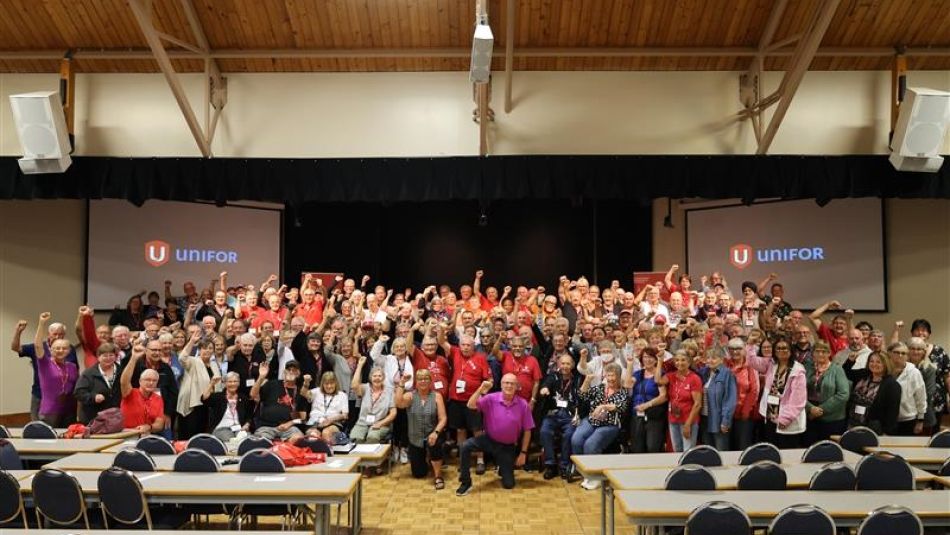
Share
On October 1, Unifor celebrates the International Day of Older Persons, building on this year’s theme of “Older Persons Driving Local and Global Action: Our Aspirations, Our Well-being, Our Rights.”
The General Assembly of the United Nations first observed this day on Dec. 14, 1990, to draw attention to the important contribution of seniors, and to examine the changing demographics of the world and our aging population, also known as the "age of aging."
Unifor recognizes this day as an opportunity to provide education on public issues and concerns, to mobilize for change and action, and to celebrate achievements.
Unifor retirees continue to lobby governments to enhance healthcare and care giving sectors, and to stop the privatization of services. Now, more than ever, communities should embrace a senior friendly focus that includes housing, activities, care and services.
The union’s retirees continue to fight for improved standards of living and for better and more inclusive healthcare, dental care, national pharmacare and housing programs. Retired members provide vital support to the union’s ongoing campaigns as well as during labour disputes.
The International Day of Older Persons serves as a platform for seniors to strive toward reshaping societies worldwide through their collective experience, advocating for their well-being and that of others. Older persons are a driving force towards advocacy, well-being, enrichment and community resilience.
The world’s population is not only growing older but doing so at an unprecedented pace and scale. The number of people aged 60 years or over has more than doubled, from around 541 million in 1995 to 1.2 billion in 2025 and is projected to reach 2.1 billion by 2050.
The number of persons aged 80 years or over is growing even faster and is projected to surpass the number of infants by the mid-2030s. These demographic shifts demonstrate that older persons represent a significant and growing segment of society, whose equal recognition and integration into policy and legislative planning are essential.
This transformation is most pronounced in developing countries, which will account for most older persons within the next 30 years. Life expectancy has reached 73.5 years in 2025, an increase of 8.6 years since 1995.
The demographic shift has significantly transformed the caregiving landscape, encompassing a wide range of needs for both paid and unpaid support in formal and informal settings. As populations age, the demand for comprehensive health care, care in general, and social support services has grown substantially.
It is important to recognize that development will only be achieved if it is inclusive of all ages. Governments at all levels must ensure that older persons receive the care, opportunities and support required to experience healthy aging.
Governments and society must endeavour to protect all human rights and to reduce and eliminate these inequalities.
Retirement security for all has long been a core demand of our union and the labour movement. It is a demand that continues to be as important as ever today.
We need governments to direct attention to the needs and challenges faced by many older people. Whether they be socioeconomic, health, housing, and other related impacts on the lives of older persons. Discrimination based on age and gender perpetuates intersectional inequalities, including ageism and sexism.
Older persons are a valuable aspect of our society, and their contributions are needed to strengthen communities and for the betterment of society.


